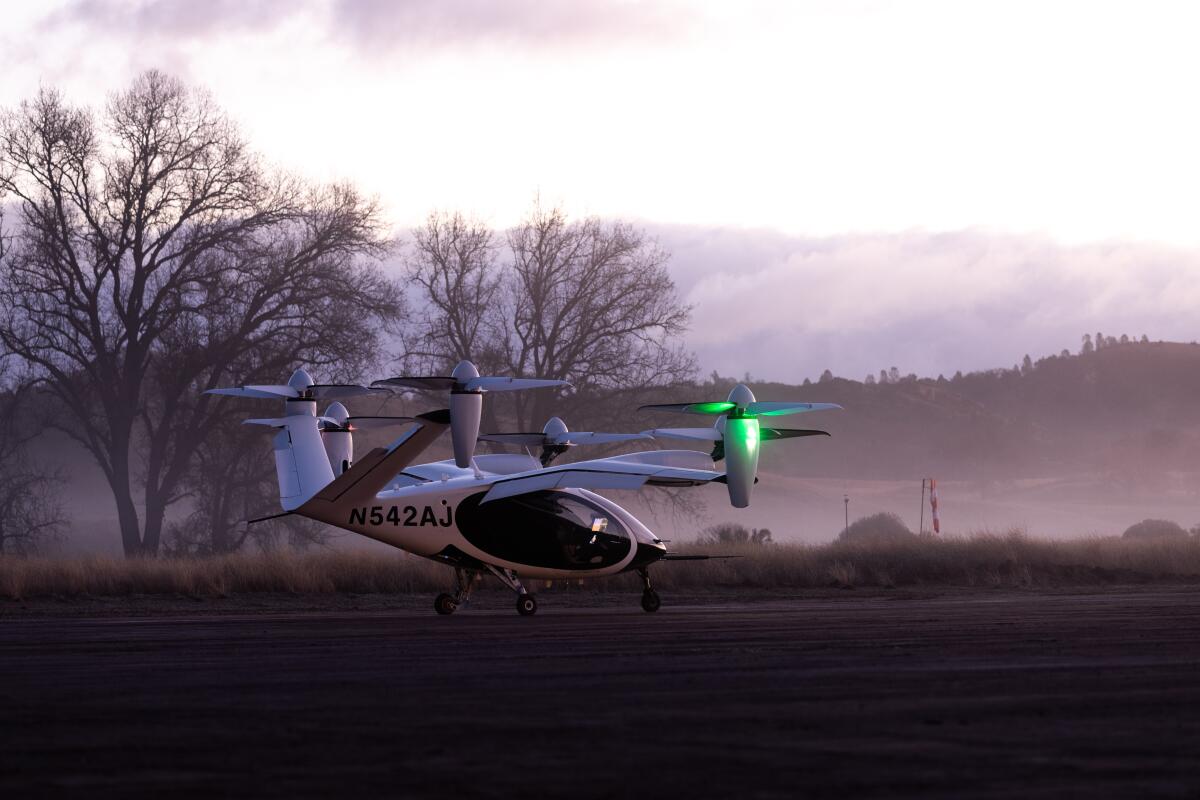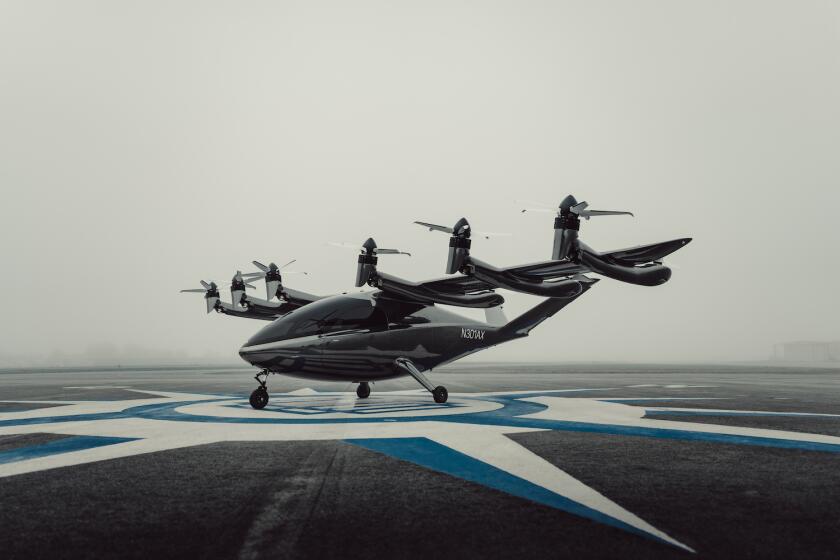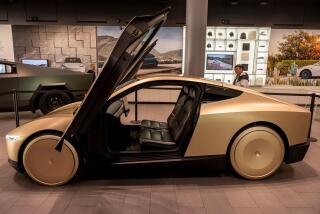Flying taxis inch closer to reality as Joby Aviation expands testing

- Share via
The flying taxi business took another step toward reality Wednesday as Joby Aviation announced it had received U.S. regulatory approval to expand testing.
The Santa Cruz company said that the go-ahead from the Federal Aviation Administration will let it test flying taxis coming off its production line; it previously could only demo a prototype made by hand.
Joby showed off the first aircraft from its manufacturing facility at a media event.
“This is a huge moment,” Joby Chief Executive JoeBen Bevirt said on Bloomberg TV from the factory in Marina, Calif.
Joby shares jumped 40% Wednesday and have now doubled since late April. The rally underscores the swelling enthusiasm for a business backed by Toyota that aims to break through where others have failed in providing inexpensive, vertical-lift aircraft for short hops. The big goal is to create a new category of small electric-powered air taxis designed to zip passengers across cities to avoid car traffic.
Electric air taxis are coming to Los Angeles. The city and FAA will decide if this is a grand new era in transportation or a small novelty for the rich.
But the company still has a long way to go, given that it needs FAA certification, Bevirt said. The company aims to produce “tens” of aircraft this year from its production line and begin commercial flights in 2025. “We’re still in the crawl phase of this journey.”
Longer-term, Joby is assessing other sites in different U.S. states for a larger facility that could build the aircraft in the hundreds per year, Bevirt said.
The company gave more specifics on the craft, which is designed to take off vertically like a helicopter and then fly similarly to a small plane. Joby said its vehicle can handle a payload of 1,000 pounds, which countered concerns that it wouldn’t be able to meet its goal of carrying four passengers and a pilot, Raymond James analyst Savi Syth said.
Additionally, Joby said, Tetsuo Ogawa, president of Toyota’s North America division, will join Joby’s board July 1. Toyota is Joby’s largest outside investor with about a 12% stake, according to data calculated by Bloomberg, and has helped the company build its production capabilities. The companies have a long-term agreement for Toyota to provide powertrains and some components.
The FAA said last month that vehicles such as Joby’s will be initially regulated like helicopters.
The company, which also counts Delta and Intel among its largest shareholders, said the early production units will become the first electric vertical takeoff and landing craft — or eVTOL — to be delivered to a paying customer when the U.S. Air Force receives them next year. Those vehicles are part of a $131-million contract Joby secured this year.
Dan Ketchel, Delta’s director of sustainability partnerships and performance, said Joby’s air-taxi service is a good match for the airline’s investments at Los Angeles International Airport, JFK and LaGuardia.
“We’ve made incredible terminal investments over the last couple of years, and we’re excited that Joby is bringing a transportation solution that is equally innovative,” Ketchel said.
Bloomberg staff writers Diana Carolina Bravo and Mary Schlangenstein contributed to this report.
More to Read
Inside the business of entertainment
The Wide Shot brings you news, analysis and insights on everything from streaming wars to production — and what it all means for the future.
You may occasionally receive promotional content from the Los Angeles Times.











